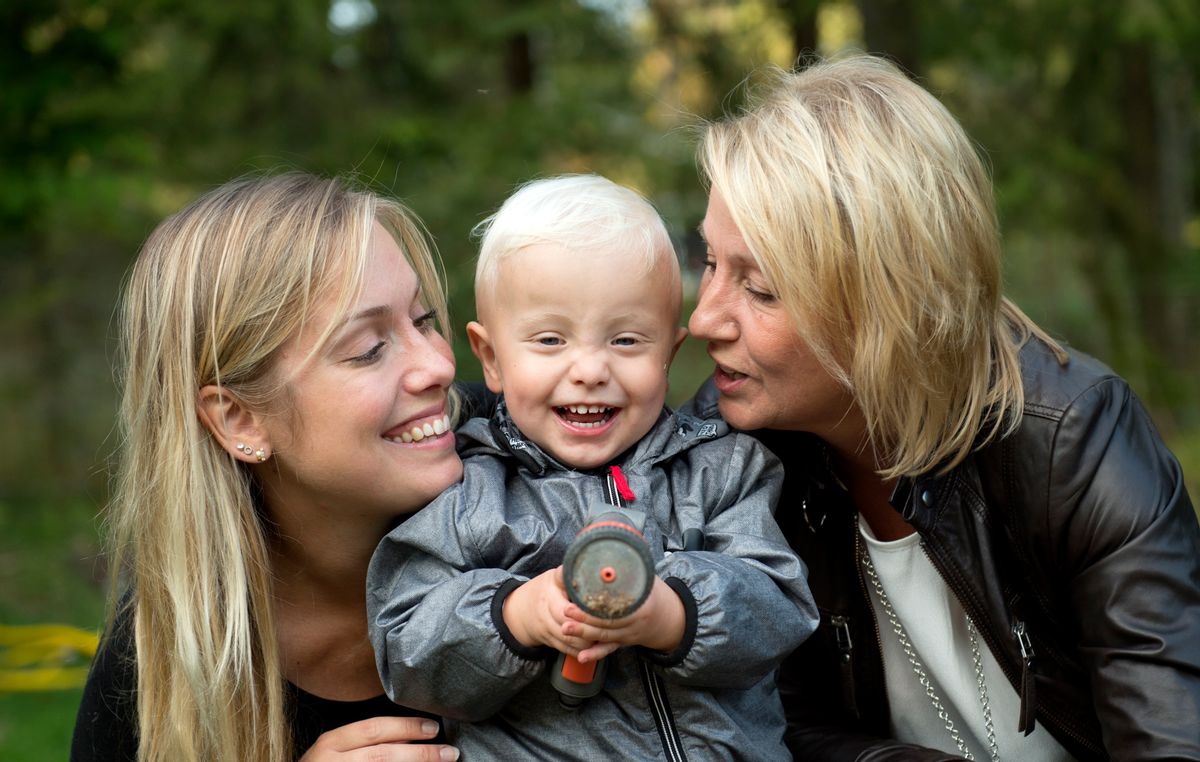At 31, with a successful career as an author and artist, Lauren Brim felt her life was near perfect. “I was working for myself and making art,” she told Washington Post reporter Britany Robinson. “I had great friends.”
Yet, despite the happiness and privilege life afforded her, Lauren felt something was missing: a baby.
She had been through many relationships, even seeking help from relationship coaches and through hypnosis, all with the intention of finding a life partner and beginning a family. But with little success and declining hope, she wondered if there might be another way to begin a family. Why wait for a husband to have kids with? She could do it with someone else.
Brim approached one of her friends and after months of discussion about everything from spirituality and schooling to medical care and finances, the two decided to have a baby, on the grounds that they would take an equal role in parenting and their relationship would remain platonic.
Brim’s story is representative of larger cultural shifts in how women view marriage, family, partners, and parenting. A recent study by Lake Research Partners and Family Story, a nonprofit that explores and preserves family histories, revealed that more than half of women think there should be more ways to raise children with someone who is not a romantic partner. Fifty-eight percent of unmarried mothers say they would consider raising a child with someone who is not a spouse or romantic partner.
Whether it’s choosing to focus on a career, waiting to be financially stable and independent of someone else or still searching for the right person, women are staying single longer than ever before. A Pew study found that the average age for women to get married, 27.4 years, is at an all-time high. With women getting married later, childbearing has fallen sharply. Kenneth Johnson, a sociology professor and demographer at the University of New Hampshire, estimates that roughly 500,000 fewer babies are now being born per year than would have been the case had the fertility rates of the mid-2000s continued.
Despite the decline, many women in their 20s and 30s still want children. A Gallup study in 2013 found that only 6 percent of American adults — both men and women — don't have kids and don't want them. Surprisingly, younger Americans are increasingly interested in having large families. When asked to name an "ideal number of children to have,” American under the age of 30 gave an average response of 2.7 kids, higher than any other age group.
This conflation of factors — declining marriage and fertility rates, yet an increased desire for children — has prompted women to find ways to have children outside of traditional methods.
“The family is always evolving,” said Nicole Rodgers, the founder and co-director of Family Story. “We tend to forget that if you take the long view of history, the independent nuclear family is a bit of an aberration. It was never really the 'tradition' many think it was, and in fact, for much of our history, multi-generational homes were far more common. Most women understand that family can take many forms, and that a good family is simply a group of people bonded together by love, care and support for each other.”
Co-parenting, a term previously used to describe a couple who continues to parent affably after they break up, is evolving to mean something else: a partnership of two or more people who come together to raise a child, regardless of marriage or romance. Also known as platonic parenting, adults are increasingly joining forces and thereby shifting and expanding the concept of the family. In the Family Story and Lake Researchers’ survey, 60 percent of women believed that children do best with multiple adults invested and helping, but that two married parents are not necessary.
"Different cultures and communities, in this country, and around the world, have always done family in all sorts of different ways," said Rodgers. "Black families, for example, have a tradition of raising children collectively in ways that transcend blood and legal ties. I think you can argue that is a far better and more natural way to raise kids."
As the model of the family continues to evolve, services are likewise developing to help and foster support for adults interested in opportunities outside of tradition. Modamily, Coparents, and Family by Design are all sites where people can create profiles to meet compatible strangers, much like Match.com or OkCupid. However, instead of seeking some type of romantic or sexual relationship, users intend to find a partner in platonic parenting.
That’s how Tatijiana Busic, a 35-year-old single mom who wanted a second child, met Brendan Schulz, a 44-year-old gay man looking for someone to raise a kid with. They have a written agreement that outlines an even share in finances and time spent with their son, Milo.
Despite the planning and amiability they have cultivated in their relationship, Schulz acknowledges that it requires an enormous amount of trust. Platonic parenting can create many complications, entirely different from married or divorced parents. There is little legal stipulation for co-parents, especially when there are more than two involved. Coparents.com encourages individuals to get legal counsel before committing to raise a child.
"Families come in many forms, and are always evolving," said Rodgers. "The biggest problem we face is that our current policies and practices support so few of them."
Nonetheless, with time, the laws will reflect how mindsets have changed. Rodgers believes social and economic mandates that assume what a family should be are hurting everyone. “Our survey shows that women are pretty open-minded about building lives and raising families, in all sorts of ways.”




Shares